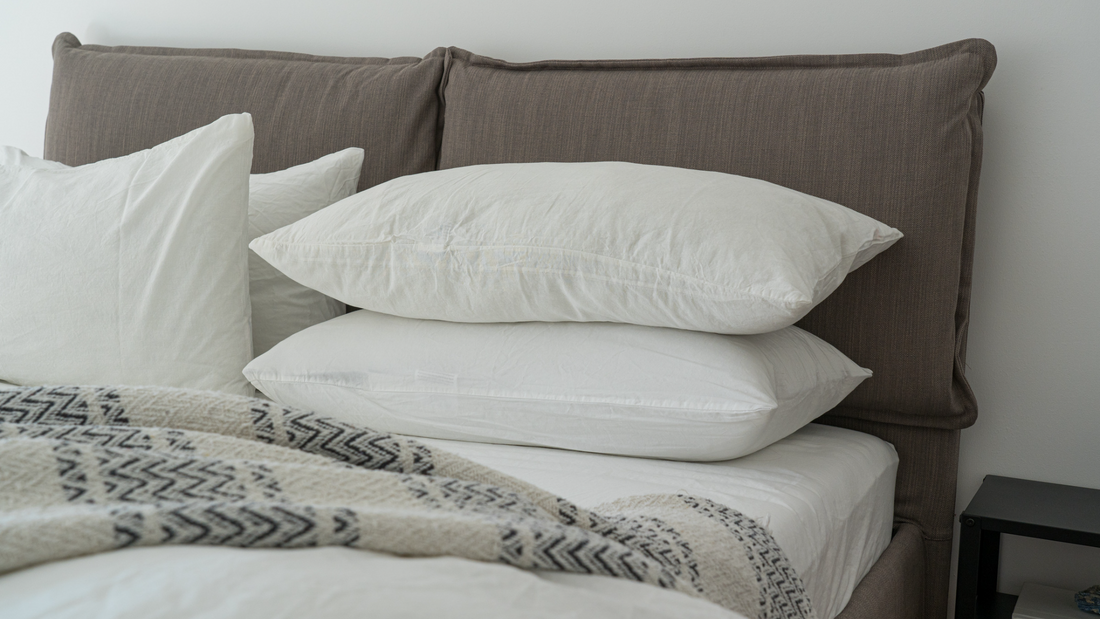Well, it's time to talk about pillows! They're an underappreciated piece of bedding that plays a huge role in your sleep. And yes, there are many different options out there. But if you're wondering how often you should replace yours, just keep reading for some tips on when you should throw away your current pillow and invest in a fresh one instead.
How often should you replace your pillow?
The answer depends on the type of pillow you buy and how often you use it. In general, most experts recommend replacing your pillow every 2-3 years.
- If your pillow becomes flat or lumpy, it's time to replace it.
- If you notice a musty smell coming from the case of your pillow, that's also an indication that it’s time to be replaced (and maybe cleaned).
- If you're not sleeping well because of it--or if someone else in the house notices that something isn't right with their sleep--it might be time for new pillows!
It starts to smell.
If your pillow starts to smell, it's time to replace it. If you can't tell if your pillow is smelly, check the tag on the back--it should say how often you should replace it. If there's no information on how often it should be replaced, then consider throwing out or donating your current pillow after three years of use (or earlier if there are any signs of wear).
If you're unsure whether your pillows are gross enough for replacement, try this experiment: place both hands over one nostril and breathe deeply through another until all smells are gone from inside your head; then take one hand away from each nostril and sniff at least twice before making a final decision about whether they need replacing based on their odor alone! If both hands smell equally bad when removed from nose holes during this process (and ideally still smell bad after reinserting them), then chances are good that neither needs replacing yet--but keep checking back every few months just in case things change over time!
You're not sleeping well because of it.
If you're not sleeping well because of your pillow, it's time to replace it. While there are many factors that could be causing your insomnia, including stress or illness, an uncomfortable pillow can also cause neck pain and headaches that prevent a good night's rest.
A good pillow should be comfortable and supportive--and easy to adjust as necessary. The height of the pillow should allow your head and neck to maintain a natural alignment while sleeping (which helps prevent snoring). The best pillows are soft but supportive; if they feel too hard or lumpy after being used for a while, they may need replacing sooner than expected!
Have you ever owned a down comforter?
Down comforters are a great choice if you want a soft and warm pillow, but they tend to be expensive. They're also not very durable, so you'll probably have to replace them every few years. This can be inconvenient if you're not ready to buy another one right away and don't want to keep using an old one while waiting for your new one to arrive in the mail.
Down comforters also tend not to dry well after being washed--if at all--so it may take several days or even weeks before they're completely dry in humid weather. And because down feathers sometimes escape from their casing during use or washing/drying processes, down pillows may require special care when cleaning them so that no stray feathers end up stuck between your sheets or mattress!
Conclusion
So, what do you think? Should you replace your pillow every six months? Maybe not. But if it smells bad or feels lumpy, then yes! You should buy a new one. And as always, be sure that your pillow is comfortable for you. If it doesn't feel right after sleeping on it for a few nights in a row, then don't hesitate to try something else out there on the market!

